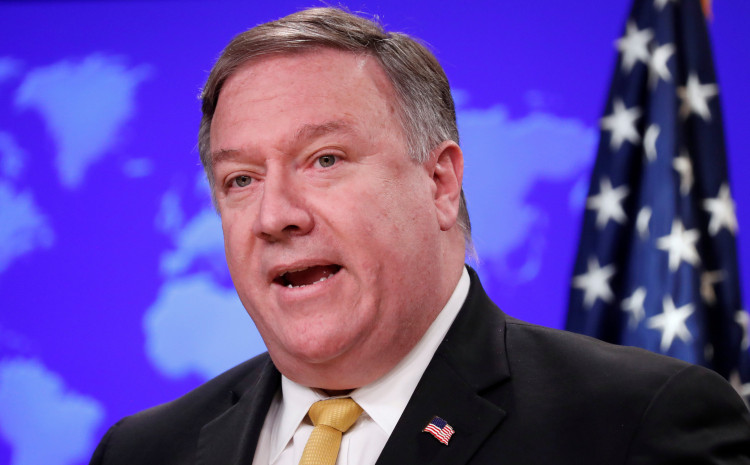The United States is planning, but not preparing for, an invasion of Venezuela, said the Pentagon, rebuking Secretary of State Mike Pompeo, who said the U.S. military intervention to topple President Nicolas Maduro is "possible."
"The President has been crystal clear and incredibly consistent. Military action is possible," said Pompeo. "If that's what's required, that's what the United States will do."
Acting U.S. defense secretary Patrick Shanahan said the United States has completed "exhaustive (military) planning" on Venezuela. Shanahan and other Pentagon officials, however, continued to emphasize diplomatic and economic pressure to oust Maduro and not a U.S.-military led regime change.
Asked if the U.S. Armed Forces had received orders to prepare for conflict in Venezuela by deploying troops to countries bordering Venezuela, Kathryn Wheelbarger, acting assistant secretary of defense for international security affairs, remained elusive.
"We, of course, always review available options and plan for contingencies. But in this case, we have not been given (the) sort of orders that you're discussing, no," she told the House Armed Services Committee.
Sources said the U.S. military has boosted its intelligence collection and intelligence sharing with allies, like Colombia, It's also preparing for a non-combatant evacuation of Americans from Venezuela should the need arise.
Marine General Joseph Dunford, chairman of the U.S. Joint Chiefs of Staff, said he was focused on intelligence gathering and being prepared to respond if Washington opted for greater involvement in Venezuela.
He emphasized the U.S. military should act in a way that deepens its partnerships in Latin America. It has long been known that U.S. military intervention is deeply unpopular among Latin American nations.
"I think it really is very, very important that we work with others in the region to solve this problem," said Gen. Dunford.
U.S. Navy Admiral Craig Faller, commander of U.S. Southern Command, said a big focus for the United States and its partners in the region will be helping restore vital Venezuelan economic infrastructure after Maduro's exit. He called this "Day Now" planning.
"We call it 'Day Now' because there is going to be a day when the legitimate government takes over, and it's going to come when we least expect it -- and it could be right now," said Admiral Faller.
He sees no role for the U.S. military in overthrowing Maduro, saying "... It has to be, should be, primarily a democratic transition."
But, the admiral said Southern Command was ready to act if ordered to.
"We're on the balls of our feet," he said.
In a sign the crisis was grabbing the full attention of Trump's national security leaders, Shanahan canceled a planned trip to Europe on Wednesday, in part to help coordinate with the White House National Security Council and State Department on Venezuela.
The National Security Council scheduled a meeting for Wednesday afternoon to discuss next steps.






